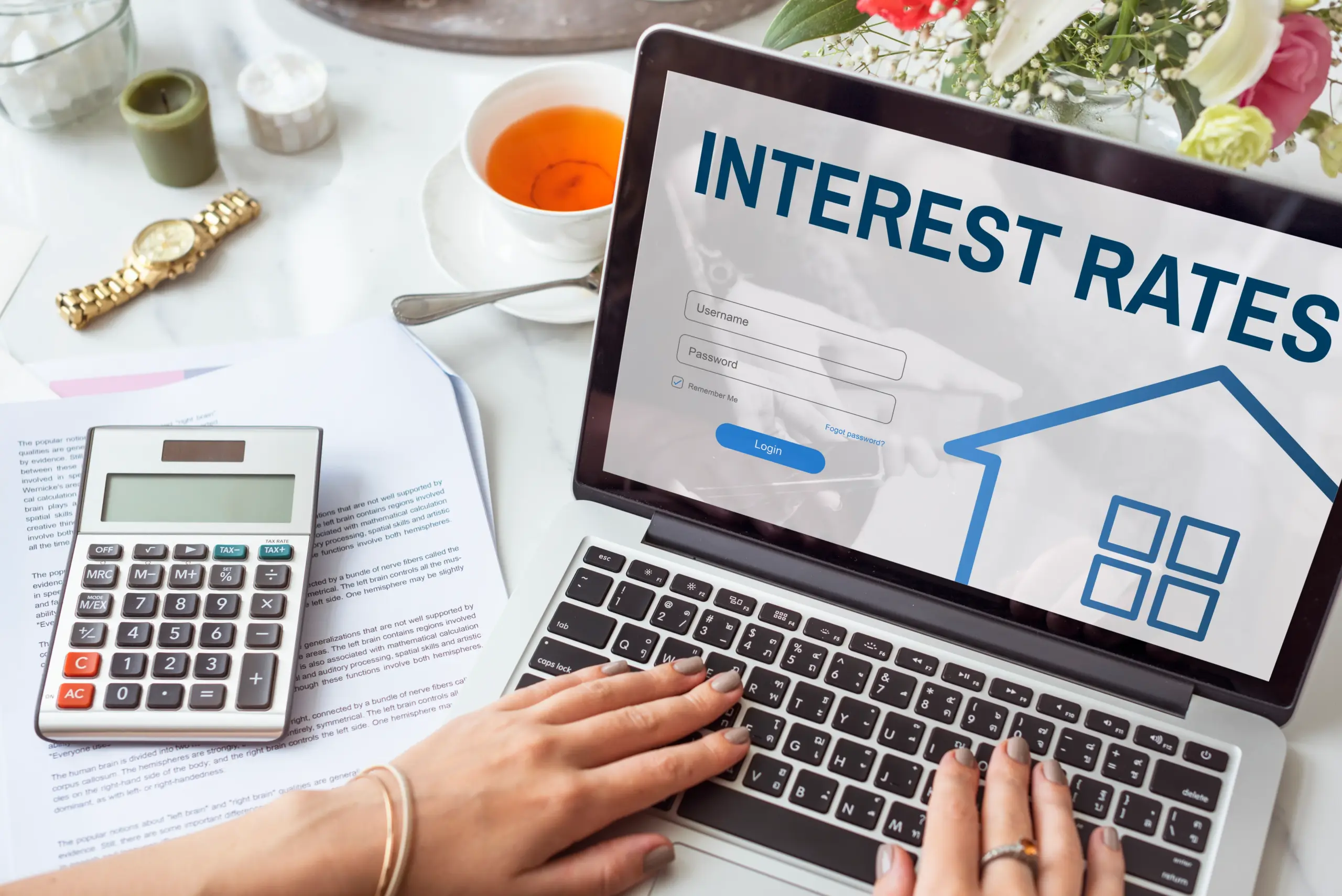Yes, you can get a loan using just your bank statements! This guide shows you exactly how bank statement loans work in 2025.
If you’re self-employed, a freelancer, or a business owner, you’ve probably felt frustrated trying to get a mortgage. Traditional lenders want W-2s, pay stubs, and tax returns that show steady income. But what if your income doesn’t work that way?
The good news is that bank statement loans are here to help. These loans let you use your actual bank statements instead of tax returns to prove you can afford a mortgage.
What Is a Bank Statement Loan?
A bank statement loan is a type of mortgage that uses your bank statements as proof of income instead of traditional documents like W-2s or tax returns. Lenders look at your actual cash flow over 12 to 24 months to see if you can afford the monthly payments.
Think of it this way: Your bank statements tell the real story of your money. They show what actually comes in and goes out every month. For many self-employed people, this gives a much clearer picture than tax returns ever could.
According to the Bureau of Labor Statistics, there are approximately 16.6 million self-employed workers in the United States as of November 2024. This accounts for more than 10% of the country’s total labor force. Many of these workers struggle with traditional mortgage requirements, making bank statement loans a vital option.
Can I Get a Mortgage Loan with Bank Statements?
Absolutely! Bank statement loans are specifically designed for people who can’t prove their income through traditional methods. Here’s how it works:
The Process:
- You provide 12-24 months of bank statements
- The lender reviews your deposits and cash flow
- They calculate your average monthly income
- You get approved based on this income calculation
Who Benefits Most:
- Business owners and entrepreneurs
- Real estate agents
- Construction contractors
- Freelancers and consultants
- Commission-based sales professionals
- Gig workers (Uber, DoorDash, etc.)
- Restaurant owners
- Anyone with irregular but sufficient income
Can I Get a Loan with Just My Bank Statement?
While bank statements are the main income proof, you’ll still need some other paperwork. Here’s what most lenders require:
Required Documents:
- 12-24 months of personal and business bank statements
- Credit report and score
- Down payment verification
- Property information
- Business license (if applicable)
Optional Documents:
- Profit and loss statements
- CPA letter
- Business tax returns (helpful but not required)
The key difference is that your bank statements do most of the work for income verification. Everything else is standard mortgage paperwork.
Do Mortgage Lenders Still Ask for Bank Statements?
Yes, but they’re using them differently now. Traditional lenders use bank statements mainly to verify assets and check for problems. Bank statement loan lenders use them as the primary way to prove your income.
This change is great news for self-employed borrowers. What used to be just supporting paperwork is now your main qualification tool.
What Is the Minimum Credit Score for a Bank Statement Loan?
Most lenders require a credit score between 580-620 for bank statement loans, though some programs allow scores as low as 500 with higher down payments. However, better credit scores get you better terms.
Credit Score Guidelines for 2025:
- 700+ credit score: Best rates and lowest down payments
- 640-699 credit score: Good options with competitive terms
- 620-639 credit score: Moderate terms, higher down payment
- 580-619 credit score: Limited options, significant down payment required
- Below 580: Very difficult, may need co-signer
Your credit score affects more than just approval. It also impacts your down payment requirements and interest rates.
2025 Bank Statement Loan Requirements
Requirements have evolved in 2025. Here’s what you need to know:
Updated Requirements:
- Credit Score: Minimum 580 (most lenders prefer 620+)
- Down Payment: 10-20% minimum (varies by credit score)
- Bank Statements: 12-24 months required
- Self-Employment: Must prove 2+ years in business
- Debt-to-Income Ratio: Usually 45% or lower
- Cash Reserves: 2-6 months of payments recommended
Income Calculation Changes:
- Personal accounts: Lenders use 75-100% of average deposits
- Business accounts: Lenders use 50-75% of average deposits
- Combined accounts allowed for total income calculation
Current Interest Rates for 2025
As of May 2025, interest rates for bank statement loans are in the 8-10% range. This is higher than conventional loans but still competitive for non-traditional mortgages.
Rate Comparison:
- Conventional loans: Around 7% (with good credit)
- Bank statement loans: 8-10% (varies by lender and credit)
- Rate difference: Typically 0.5% to 2% higher than conventional
Factors Affecting Your Rate:
- Credit score (biggest factor)
- Down payment amount
- Loan amount
- Property type
- Debt-to-income ratio
- Cash reserves
Types of Bank Statement Loans Available in 2025
Personal Bank Statement Loans Use deposits to your personal accounts as income proof. Perfect for freelancers and consultants who receive payments directly.
Business Bank Statement Loans Use business account deposits for qualification. Ideal for business owners who keep separate business accounts.
Bank Statement Jumbo Loans For properties over $806,500 (2025 conforming loan limit). Higher loan amounts for expensive markets.
Adjustable Rate Options 6-Month SOFR Bank Statement Loans with rates that adjust every six months based on current market conditions.
Pros and Cons of Bank Statement Loans
Advantages:
- No tax returns required
- Faster approval process
- Shows your real earning potential
- Better for seasonal or irregular income
- Less paperwork than traditional loans
- Available for investment properties
Disadvantages:
- Higher interest rates than conventional loans
- Larger down payment requirements
- Limited lender options
- Possible prepayment penalties
- More expensive overall
Common Mistakes to Avoid
Banking Red Flags:
- Large, unexplained deposits
- Frequent overdrafts
- Inconsistent income patterns
- Mixing personal and business funds
- Missing bank statement pages
Application Mistakes:
- Not organizing finances early enough
- Applying with too many lenders
- Not understanding income calculations
- Choosing the wrong loan type
- Poor timing with large purchases
How to Prepare Your Bank Statements
6 Months Before Applying:
- Keep personal and business accounts separate
- Maintain consistent deposit patterns
- Avoid large, unusual transactions
- Build up cash reserves
- Work on improving credit score
Document Organization:
- Gather 24 months of complete statements
- Organize by account type
- Prepare explanations for unusual deposits
- Have business documentation ready
- Check for missing pages or information
The Application Process
- Step 1: Find the Right Lender Not all lenders offer bank statement loans. Work with someone who specializes in these programs and understands self-employed borrowers.
- Step 2: Get Pre-Approved Submit your bank statements and other documents for preliminary approval. This shows you’re serious and helps with house hunting.
- Step 3: Calculate Your Income Lenders will average your deposits over 12-24 months. Understanding this calculation helps you know what to expect.
- Step 4: Submit Full Application Provide all required documents and complete the formal application process.
- Step 5: Underwriting and Approval The lender reviews everything and makes a final decision. This typically takes 30-45 days.
Alternative Options to Consider
If bank statement loans don’t work for you, consider these alternatives:
- Asset Depletion Loans Use your assets instead of income to qualify. Good for wealthy borrowers with limited income.
- DSCR Loans For investment properties, these loans use the property’s rental income for qualification.
- Portfolio Loans Some lenders keep loans in-house, allowing more flexible requirements.
- Traditional Loans If you can document income traditionally, conventional loans offer better rates and terms.
Working with the Right Professional
Bank statement loans require expertise. You need a lender who understands how these loans work and can guide you through the process.
What to Look For:
- Experience with bank statement loans
- Multiple lender relationships
- Good communication skills
- Understanding of self-employed challenges
- Proven track record of closings
At Mortgage Maestro, we specialize in helping self-employed borrowers navigate the mortgage process. We understand the unique challenges you face and know how to present your application for the best possible outcome.
Tips for Success
Before You Apply:
- Maintain consistent banking patterns
- Keep detailed records of all deposits
- Work on improving your credit score
- Save for a larger down payment
- Gather all required documentation
During the Process:
- Respond quickly to lender requests
- Be honest about your income sources
- Don’t make large purchases or changes
- Stay in close contact with your lender
- Be patient with the underwriting process
Regional Considerations
Bank statement loan availability and terms can vary by location. Some areas have more lender options than others. Work with a professional who knows your local market and can find the best options available.
Your banking habits can actually affect your loan approval in ways you might not expect. Simple changes to how you manage your accounts can improve your chances of approval.
Take Action Today
If you’re ready to explore bank statement loans, don’t wait. These programs can help you achieve homeownership even with non-traditional income.
Ready to get started? The mortgage experts at Mortgage Maestro can review your situation and explain your options. We’ll help you understand exactly what you qualify for and guide you through the entire process.
Schedule your consultation today and take the first step toward homeownership. Our team specializes in helping self-employed borrowers like you navigate the mortgage process with confidence.
Remember, being self-employed doesn’t mean you can’t buy a home. Bank statement loans are designed specifically for people who build their own success. With the right lender and the right preparation, homeownership is absolutely within reach.
Don’t let traditional lending barriers stop you from achieving your homeownership dreams. Contact us today and discover how bank statement loans can work for you.
This information is current as of 2025 and is for educational purposes only. Loan terms, rates, and requirements may vary based on individual circumstances and current market conditions. Always consult with a qualified mortgage professional to discuss your specific situation.










